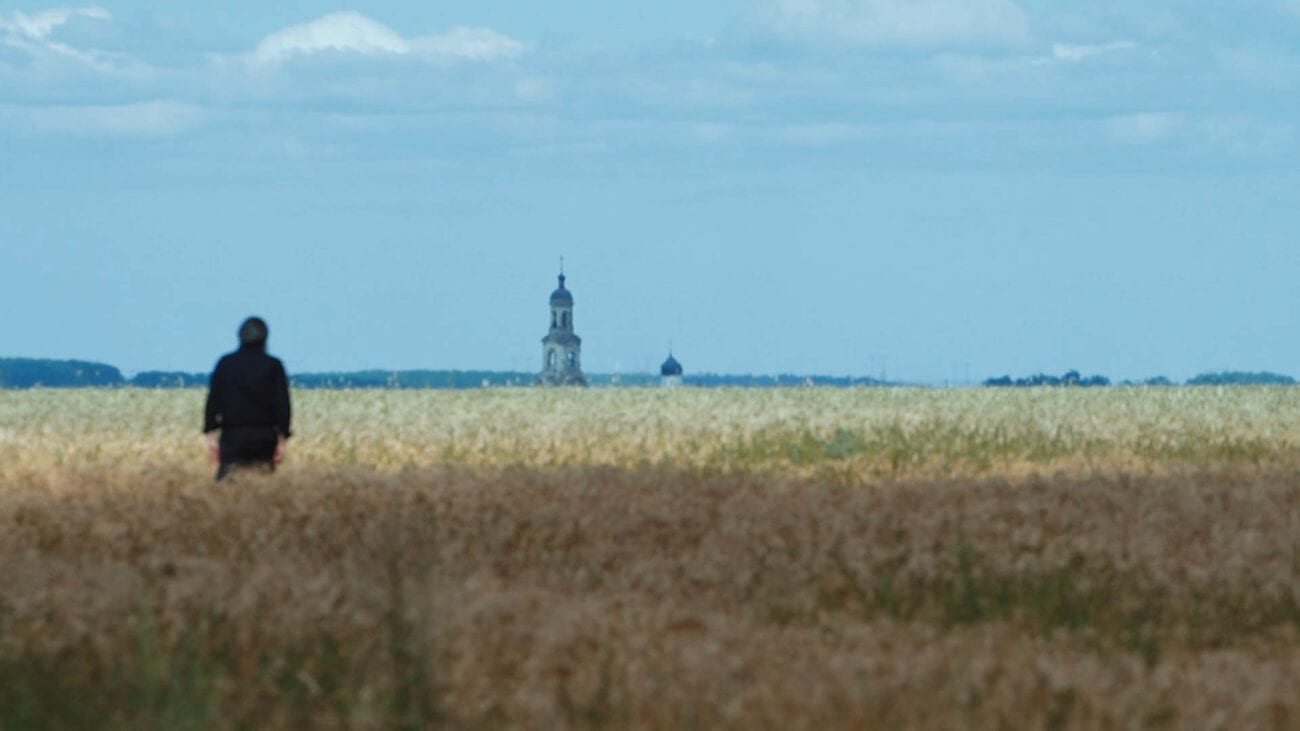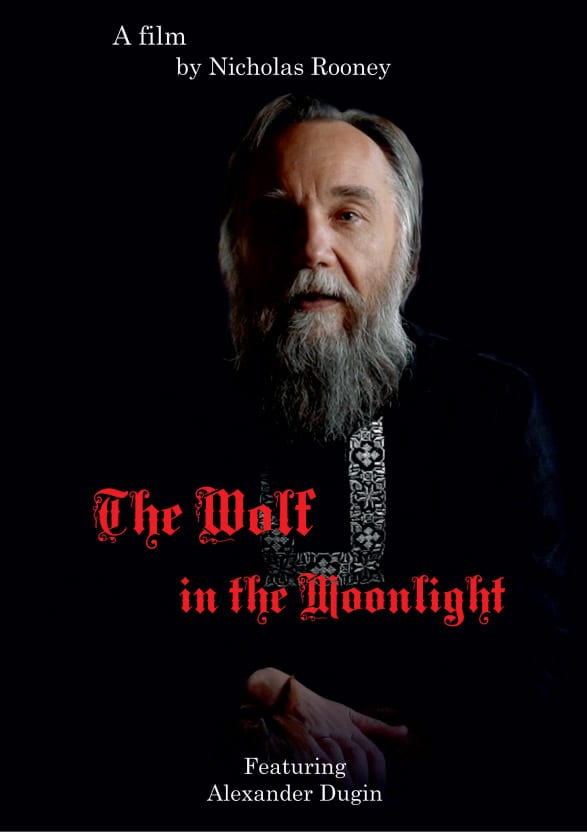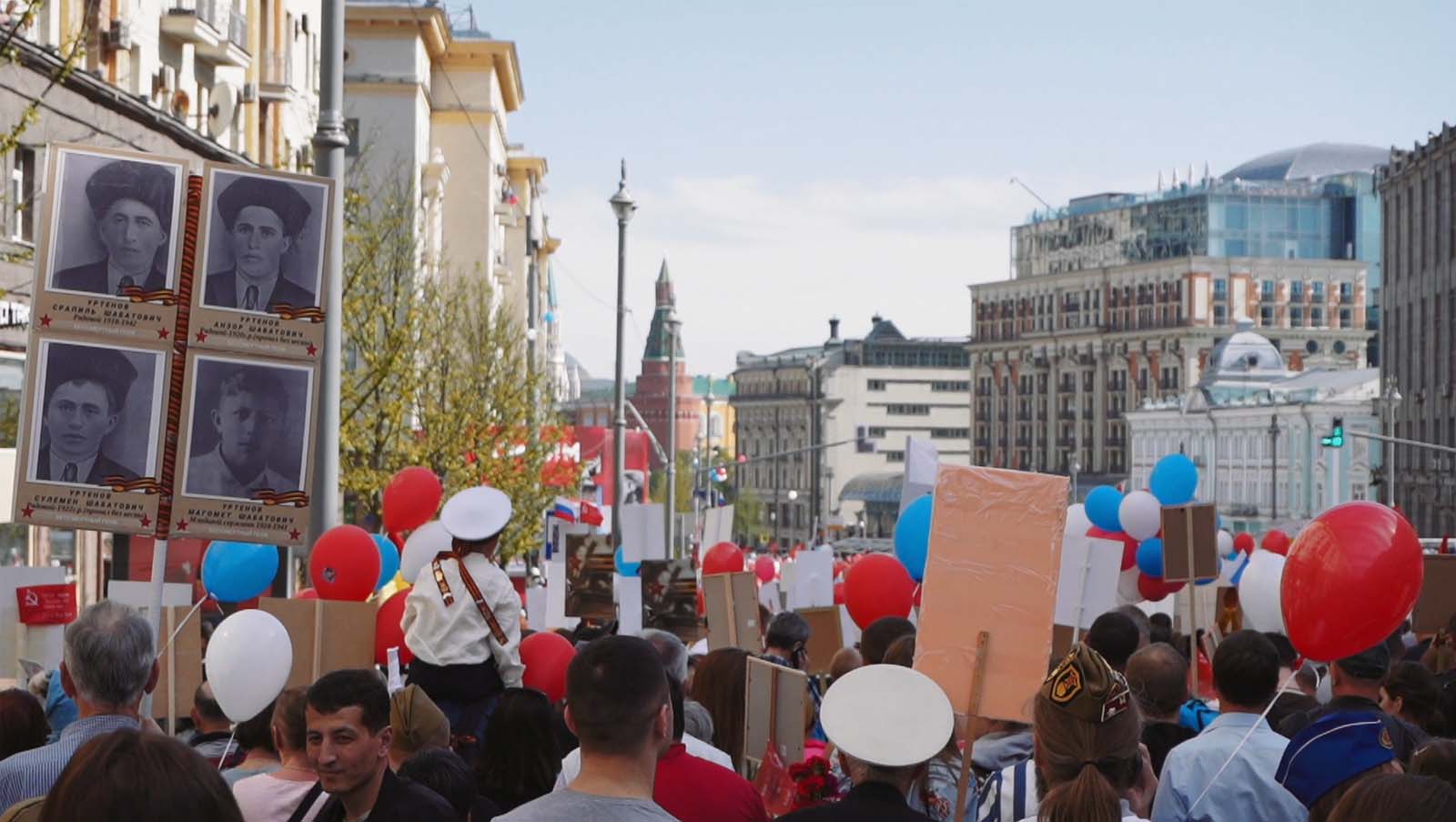
‘The Wolf in the Moonlight’: An interview with filmmaker Nicholas Rooney
Nicholas Rooney has a background that few filmmakers can claim. He worked as a diplomat for the EU at its Delegation to the Organization of Security and Cooperation, and he has studied Latin and Greek. His professional experiences give his films a fresh and insightful perspective, as evidenced by his new release, the documentary The Wolf in the Moonlight.
The Wolf in the Moonlight details a series of interviews between Rooney and Russian philosopher Alexander Dugin. Their discussions cover a wide range of topics, including, nuclear war, the Skripal spy scandal, and the purpose of life, beauty, and democracy.
FilmCraft was fortunate enough to chat with Nicholas Rooney about his new film, his diplomat past, and his fascination with exploring spiritual themes.
Do you feel your career as a diplomat has informed your filmmaking? If so, how?
Yes, I feel that I have some interesting real-world experience to draw upon. Plus, a diplomatic approach can be very useful in interviewing people and navigating the bureaucratic part of filmmaking.
Did you find it difficult to make a film about Dugin that detailed his beliefs while maintaining an unbiased approach?
Sometimes, but I believe it had to be done in this way. I personally find the biased, aggressive, ‘Punch and Judy’ interview style rather crass and ultimately futile. To my mind this approach reveals more about the interviewer than the interviewee. Whereas, if you create a calm, empathetic atmosphere with a sufficient level of trust, it will be a far richer and more enlightening experience.
You mentioned that you came across the idea for The Wolf in the Moonlight right after you completed your first film. Were you looking to make another film at the time or did the idea just come about organically?
Yes and no. But, once I started to probe the subject further the wheels of fate began to spin so fast that they rendered my course of action irreversible.
Your interviews with Dugin resulted in the Wolf film and a book that’s scheduled for release next year. Did you find it difficult to determine which material made it into the film and which material should be set aside for the book?
Absolutely for the film, the editing process was very long and difficult. But, some scenes were so compelling and visually engaging that they just had to be included. While others were very dry and theoretical and obviously more suitable for the written form than the screen. In any case, no material will be lost as the full interviews will be in the book (provisionally entitled Talking to the Wolf).

How does The Wolf in the Moonlight differ from your previous film, The Pillars of Heaven?
There are certainly many similarities between the two, e.g. In both I am a protagonist and narrator, and faith and geopolitics are the common themes. The Wolf in the Moonlight is perhaps a more philosophical and enigmatic film and deals with a single well-known individual. I think The Pillars of Heaven is a more personal film for me and it was my first feature film.
For this film I went on a journey of faith and war, at times at great personal danger, in Ukraine. A country riven in pieces by indescribable events, sometimes called: an EU inspired and US-organised revolution, a Russian invasion, a civil war, a war of lies and misinformation, a war where thousands of people have died, and which created over a million refugees, and a war at the heart of Christendom which rips the very geopolitical foundations of Europe to shreds.
With the Ukrainian people (including soldiers, military priests, peacekeepers, humanitarian aid workers, refugees, church leaders, politicians/ ‘terrorists’, ordinary families and everyday victims of the war) as my guide, my journey took me from the idyllic Carpathian Mountains, to the golden cupolas in Kiev to the very heart of the hellish war-zone in Donetsk.
It was an odyssey from Christmas Eve to the Epiphany, searching for the soul of this troubled nation and for something which might help to bring a lasting end to the bloodshed and prevent a wider military confrontation between Russia and the West. For this film I strove to create a profound, relevant and spiritual exploration accompanied by beautiful music.
Both of your films have tackled difficult geopolitical and philosophical concepts. What makes cinema such an ideal medium to communicate your ideas?
I’m not sure cinema is the perfect medium to tackle such difficult topics, one could persuasively argue that the written form is best. Indeed, that is why I am planning to publish a companion book for The Wolf in the Moonlight.
And one day I hope to publish a similar companion book for The Pillars of Heaven. However, cinema’s great advantage is that it can add very powerful layers of visual mystique and drama to such difficult topics.

You are the founder of the production company Theatre of Life Productions. What would you say makes the company unique?
I would say its focus on the eternal and classical elements of life, combined with its interest in diplomatic, geopolitical and espionage topics.
Would you want to direct a feature-length, fictional narrative at some point?
I have already directed two short film narratives. A few years ago, I directed a biblical epic A Father’s Sacrifice which won several awards and dealt with Abraham’s famous sacrifice of his son Isaac.
Now, I am just finishing off an existentialist mountain piece Il Rimedio which deals with the underlying philosophical and spiritual aspects of the current global pandemic. Adaptations of works from Tolstoy and Shakespeare, and the adventures of certain intriguing characters from espionage history are currently in my sights for future narrative films.
Do you have a dream project or a topic you would like to attempt?
Well, I think the most profound topic for me to attempt would be a series of mystical films on the life of Christ and the lives of the Saints. But on the lighter side, it would also be great fun to try to do a traditional and authentic Bond film, something Ian Fleming, Sean Connery, and Terence Young might recognise and be proud of.
Finally, what is your favorite film of all time?
Very difficult to say, as I mentioned before. However, I was recently in awe of Sergey Bondarchuk’s epic War and Peace and Carl Theodor Dreyer’s masterpiece Ordet, so these would certainly have to be up there for consideration. In terms of favorite series it is much easier. Tony Palmer’s sumptuous Wagner series with Richard Burton’s magisterial performance has to be my favorite.



